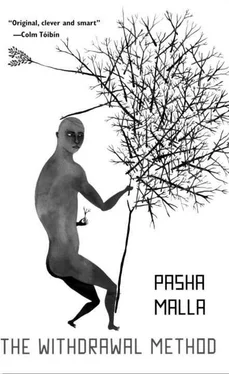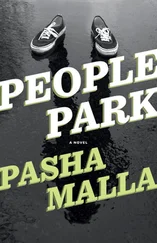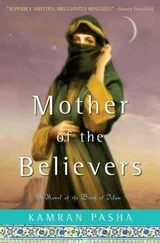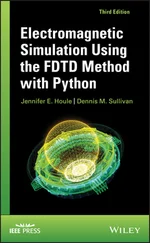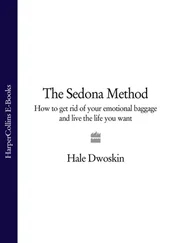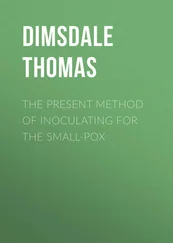LUIS-ENRIQUE CASTILLO wasn't entirely sure what he'd been sent to the hold of the Otis to retrieve. The youngest son of a family of Cuban banana farmers, he'd sought work on board in order to make passage to America — although his English apparently still needed some work. It was impossible to decipher the Louisiana-born captain's orders. After a baffling sequence of instructions that rose in volume, but not clarity, and concluded with Luis-Enrique being slapped on the side of the head and pointed below-decks, he had slunk off, wondering if confusion would be all his life among Americans would entail.
Opening the door to the hold, initially Luis-Enrique thought he saw two men on either side of a chessboard, before realizing that one was a dummy; the other, slumped onto the desk, he recognized as the mysterious German who had been holed up in his cabin since departing Havana. From overheard snatches of conversation, Luis-Enrique had been able to glean that this Maelzel, some type of inventorcum-impresario, had been driven mad by his own creations. Although now, as Luis-Enrique skirted a puddle of vomit and prodded the dead man with the toe of his boot, the cause of his tribulations was irrelevant.
As the bringer of the news to the rest of the ship, LuisEnrique was assigned the disposal of the inventor's belongings. In Maelzel's sleeping quarters — littered with empty wine bottles, the stuffing of a mattress ripped to pieces, halfeaten meals, the shards of a shattered mirror- he discovered twelve gold doubloons, some paperwork documenting substantial debts and outstanding payments, a chessboard and set, complete but for one pawn, and a beaded necklace of the sort sold by male prostitutes in Regla.
Then there was the cargo that filled the hold. After mopping up the puddle of vomit, Luis-Enrique carted the strange machines out one by one, lining them up along the deck beside the dead man, now lashed to a stretcher and swaddled in a tarpaulin. The Turk, however, proved too large for him to move on his own, and none of the other crew seemed eager to lend a hand. Abandoning the frightening creature — LuisEnrique found himself avoiding the piercing, accusatory stare of its sapphire blue eyes — he returned above-decks for the final send-off.
The funeral, a classic burial at sea, was attended by just under half the crew, many of whom chewed on cigars while the ship chaplain mumbled a cursory prayer. There was a halfhearted "Amen" before Maelzel's things were pitched overboard. The captain pointed at the corpse, then at Luis-Enrique, then down at the water.
Luis-Enrique lifted one end of the stretcher and, dragging its heavy cargo across the deck, wondered what sort of man this Maelzel had been, whom he was leaving behind. At the edge, with the body teetering over the sea, the boy paused. He felt something else needed to be said, but at that moment he felt a shove from behind. Stumbling, Luis-Enrique looked back, saw the captain grinning broadly, and only heard a splash from below as Maelzel hit the water and was carried off in the ship's wake.
PHILADELPHIA, 1854
"COME ON," said Mary, tugging at Silas's sleeve. "You promised you'd show me."
Silas faltered, looking up. The Chinese Museum loomed above them against the purple clouds of the night sky, a big, black box darkening a full block along Sansom Street between Eighth and Ninth. The lantern in his hand tempted him, but he knew it would only be safe to light inside.
"Come on," she said again, huskily, leaning close, her mouth at his ear.
Behind them the darkness was punctured by a single glowing street lamp at the far end of Sansom. Ahead another lit the corner at Ninth, but where they stood between the two lights was entirely in the shadow of the museum. It was as though this section of the street were removed from the rest of the city.
"If my father finds out about this, he'll kill me," mumbled Silas.
"You're twenty-five years old. And besides, you're not exactly the pride of the Mitchell family as is." The girl giggled and took off, dragging her sweetheart by the hand, her flowing skirts nearly tripping them both as they stole around to a door at the back of the museum. Panting, Silas produced his father's key-ring from his pocket. Mary held the lantern as he rifled through the keys jangling in his trembling hands.
"Hurry up," said Mary. "What if there are guards?"
"There's no guards — not yet, not until the exhibition opens tomorrow."
Mary pushed up against Silas, both her hands clutching his upper arm, squeezing. "I'm so excited. Do you really know how it works?"
Silas turned the key in the lock, there was an ominous click, and the door sprung open. "Okay," he said, glancing around. "Inside."
THE LANTERN THEY had brought splashed a pale yellow puddle before them, glinting off the glass cases that filled the museum, gridlike. The smell of burning kerosene hung heavy in the air, and beyond the lantern's feeble glow stretched darkness, eerie and silent, the vague shapes of statuettes and stuffed animals silhouetted against the walls. Through the windows, a half-moon like an upended china bowl appeared at intervals between the clouds.
"Where is it?" whispered Mary. The echo of her voice came hissing back at them.
"Downstairs. The door to the basement's just in the next room, to the right."
"This is so exciting!"
Silas, though, was not thinking about excitement. He was preoccupied with thoughts of his father noticing the keys missing and appearing in the laboratory to find Hammond alone and his son missing. Hammond was a good friend who would do his best to make some excuse — that the younger Mitchell had left to hunt for snakes to extract venom, something diligent-sounding and plausible — but Silas knew that his father's innate sense of reason, coupled with a constant state of suspicion, would undoubtedly prevail.
Even half a world away, when Silas had been travelling around France, letters from Philadelphia had seemed to arrive almost immediately after another of the escapades he thought typical, if not expected, of a Grand Tour. Silas always opened mail from his father reluctantly, knowing it would comprise chidings and angry demands to return home, put his medical degree to some use and join the family practice, instead of wasting his time with frivolity overseas. Whether this was genuine, or merely an attempt to get Silas back so they could continue their private performances with the Turk, he was unsure. Regardless, when one of the letters, received after an evening out with some cancan ladies in Montmartre, concluded with the lament, "You are wanting in nearly all the qualities that go to make a success in medicine," Silas decided to return to Philadelphia — if only to prove his father wrong.
But here he was, trespassing in the Chinese Museum, now at the door leading to the basement, about to betray his father's trust yet again. And here was Mary, beautiful, brilliant Mary whom he loved, with her hand on his arm. "Down here?" she asked, wide-eyed.
Silas swung the lantern, light dancing across both their faces, shadows stretching out behind them. A sign on the door read Lower Hall Exhibits. "Down here."
As they descended, step by step, again Silas found himself thinking of his father, could hear the tone of disapproval if he were to discover his son sharing with a colleague's daughter his most prized possession. And not just any colleague's daughter: Mary's father, Dr. Alfred Elwyn, was an eccentric who opted, instead of practising medicine, to open hospices for the feeble-minded and chair societies dedicated to the welfare of animals. Silas knew that this time his punishment would not be limited to parental admonishments; now, considering the patriarch's condition and with the family practice at stake, disappointing his father would result in something far graver.
Читать дальше
